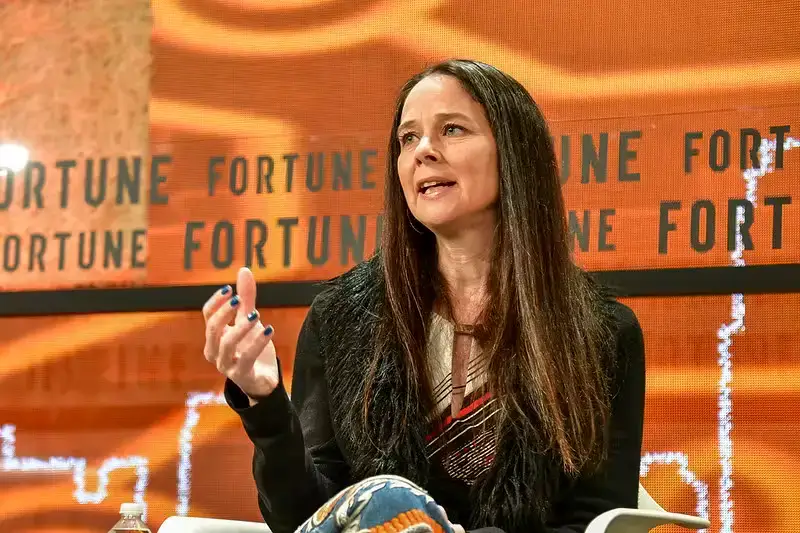Jen Easterly, director of the Cybersecurity and Infrastructure Security Agency (CISA), assured that the United States’ election systems were more secure than ever, making it nearly impossible for foreign adversaries to alter the election results. The statement comes amid rising concerns regarding US election security, particularly from Russia and Iran. Â
Easterly said the nation’s voting and ballot-counting systems were resilient enough, that “malicious actors, even if they tried, could not have an impact at scale that could have a material effect on the outcome of the election.†[sic]
In the lead-up to the Presidential election on November 5, US officials have alerted the political parties and the US population about increasing attempts by foreign powers to influence American voters. These efforts, particularly from Russia and Iran, are primarily aimed at undermining trust in the electoral process and sowing discord among Americans.Â
US Election Security, a Top Priority
The Biden administration has taken steps to counter these threats, seizing over two dozen websites operated by the Kremlin that were found to be disseminating misinformation. Additionally, charges were filed against two Russian state media employees for their roles in a scheme to covertly influence American voters through funding right-wing influencers.Â
Easterly’s remarks come at a time when misinformation about the electoral process is rampant. Efforts to influence past elections through online disinformation campaigns have been documented, with both Russian and Iranian operatives employing fake social media profiles and websites to mislead voters. As Easterly pointed out, the primary goal of these operations is to erode confidence in the integrity of the electoral system.
In addition to the challenges posed by foreign actors, domestic misinformation has also rooted, prompting U.S. Senator Mark Warner of Virginia to urge CISA to take stronger action against misleading information. Warner’s letter recommended enhanced coordination with social media platforms to combat false claims that may circulate in the months leading up to the election. Â
Easterly acknowledged the “very convoluted, very confusing information environment” that voters face. While CISA is committed to promoting accurate information in collaboration with election officials, Easterly clarified that monitoring social media platforms is not within the agency’s purview. “That is not our role,†she noted, adding that voters should seek information from their local election offices to understand the safeguards in place. Â
A Historical Perspective on Election Security Â
Reflecting on the historical context of US elections, Easterly remarked on the progress made since the 2002 midterm elections. Back then, the nation was still reeling from the aftermath of the September 11 attacks, and the successful execution of those elections served as a powerful symbol of resilience. Today, the landscape is vastly different, with heightened threats ranging from cyberattacks to misinformation campaigns. Â
Easterly pointed out that nearly eight years ago, election infrastructure was designated as critical infrastructure, allowing CISA to take the lead on election cybersecurity. Since then, the agency has made remarkable strides in collaborating with state and local election officials to enhance the security of the electoral process. Â
The Role of CISA in Election Cybersecurity Â
Under Easterly’s leadership, CISA has conducted over 1,000 physical security assessments and more than 700 cyber assessments since the beginning of 2023. The agency has also provided weekly vulnerability scanning reports to nearly 1,000 election jurisdictions, showcasing a proactive approach to bolstering US election cybersecurity. Â
Furthermore, CISA recently hosted its seventh annual “Tabletop the Vote†national election exercise, involving around 1,250 participants, including federal agencies, private sector partners, and election officials. These collaborative efforts aim to ensure that stakeholders are prepared for any potential threats that may arise. Â
CISA also announced the release of two new products: physical and cybersecurity checklists for election infrastructure stakeholders. These resources are designed to help officials identify areas for enhancing security and operational resilience at election facilities. Â
In her remarks, Easterly did not shy away from addressing the broader geopolitical implications of election cybersecurity. She mentioned that countries like China are also “very interested†in influencing the 2024 election.Â
To mitigate these risks, CISA has collaborated with the FBI to create a public service announcement series aimed at educating the American populace about potential cyber incidents during the election cycle. These efforts highlight the importance of maintaining public awareness and understanding the implications of cybersecurity threats.Â
A Call to Action for Voters
As the election date approaches, Easterly encouraged voters to engage with their local election offices to better understand the electoral process and how to counter influence operations.Â
“There will be a lot of information out there in the coming months,†Easterly noted. “It will be up to every voter to be able to understand the signal from the noise. That trusted signal is coming from your state and local election officials.â€Â
Source: Read More

